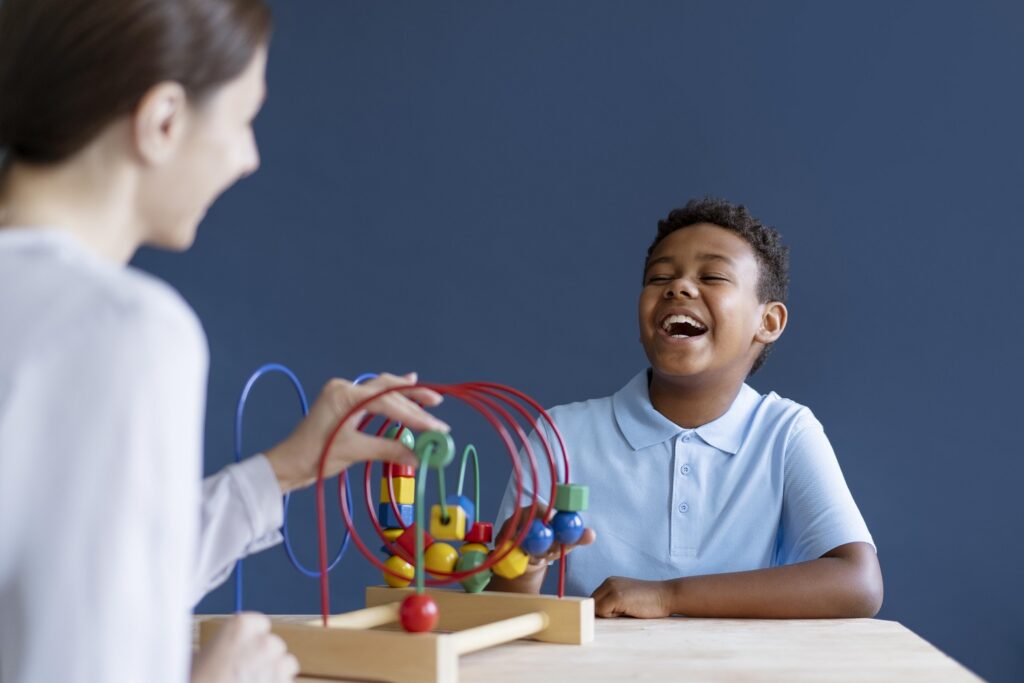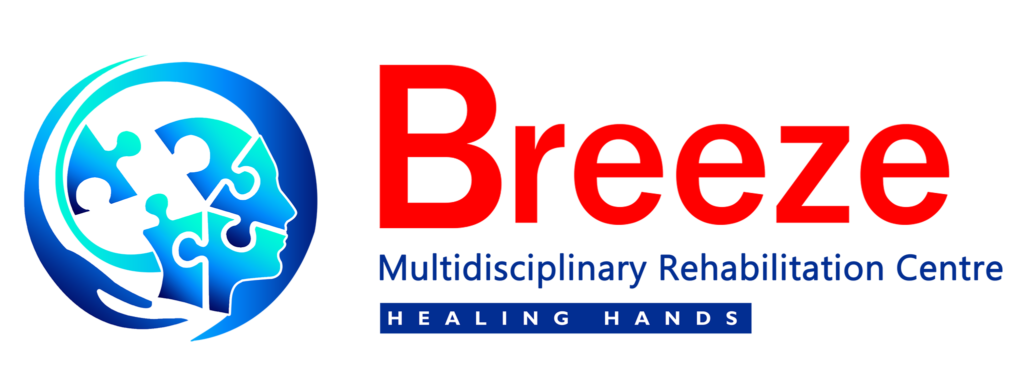
Behavior Modification Therapy:
Behaviour Modification Therapy/ Behaviour Therapy (BT) is a structured, child-centered approach designed to help children and adolescents develop positive habits, reduce challenging behaviours, and improve daily functioning. At our centre, experienced psychologists and behaviour therapists work closely with families to create personalised plans that meet each child’s unique needs.
Behaviour therapy encourages children to respond more effectively to everyday situations, build emotional resilience, enhance social skills, and gain greater independence. We use consistent, supportive strategies to motivate children and create lasting change in behaviour.
Behaviour Modification Therapy is beneficial for children with:
- Autism
- Attention difficulties and hyperactivity
- Anxiety and emotional regulation challenges
- Social and behavioural concerns
- Delays in adaptive and daily living skills
Families are actively involved and are supported with tools to continue progress at home, ensuring that the benefits of therapy extend into daily life.
How does Behaviour Therapy work?
Behaviour Therapy (BT) helps children learn new ways to communicate, manage their emotions, follow routines, and develop independence.
By breaking down skills into small, achievable steps and using positive reinforcement, our therapists motivate children in a supportive and consistent environment. It is especially helpful for children with developmental challenges, behavioural concerns, or difficulty adjusting to everyday demands.
Through behaviour therapy, children gain greater confidence, and families receive guidance on how to support learning and progress at home. We asses each assess each child’s strengths, weaknesses, and unique learning styles to tailor interventions specifically to their needs.
Why is Early Intervention important?
Early intervention plays a crucial role in supporting positive developmental outcomes for children. Starting therapy at a young age can significantly enhance skills such as social communication, interaction, and early academic readiness.
One of the key strengths of behaviour therapy is its structured, measurable approach, which allows for consistent monitoring of progress and timely adjustments to interventions. This ensures that strategies remain effective and responsive to each child’s evolving needs.
Family involvement is a vital component of early intervention. Parents and caregivers are actively included in the therapeutic process and are supported in using behaviour therapy techniques at home. This collaboration promotes consistency across environments, helping children generalise their skills and experience greater success in everyday situations.
The earlier behaviour therapy begins, the greater the opportunity to build foundational skills, foster independence, and support long-term development.
How Behaviour Therapy Helps:
Our therapists conduct comprehensive assessments to understand a child’s current abilities and areas of need.
This includes gathering information on:
🔹Developmental and Family History: Understanding the child’s background, routines, and early developmental milestones.
🔹Review of Existing Reports: Looking at prior evaluations, including psychological assessments, speech/language reports, and educational documents.
🔹Behavioural Observations: Identifying and monitoring challenging behaviours such as tantrums, meltdowns, aggression, pica, or self-injury.
🔹Communication Abilities: Assessing how the child expresses themselves and understands others — whether through speech, gestures, or other means.
🔹Daily Living Skills: Evaluating skills such as feeding, toileting, dressing, and other self-care tasks.
🔹Social and Play Skills: Looking at how the child interacts with peers, engages in play, and forms relationships.
🔹Motor Development: Observing coordination, balance, and fine motor abilities.
🔹Sensory Preferences: Noting any sensitivities or sensory-seeking behaviours that may impact daily life.
Based on this information, our therapists work collaboratively with families to set individualised goals that support meaningful growth in communication, behaviour, independence, and social interaction.
Supporting Challenging Behaviours with Behaviour Therapy
Children may sometimes display behaviours that are distressing, disruptive, or even unsafe both for themselves and those around them.
These behaviours can include:
🔹Tantrums: Intense reactions such as crying, yelling, or throwing objects, often triggered by frustration, overwhelm, or difficulty communicating needs.
🔹Meltdowns: Overwhelming emotional responses, often due to sensory overload or stress, where the child loses control and needs support to regain calm.
🔹Pica: A behaviour involving the consumption of non-food items like paper, dirt, or small objects, which can present serious health concerns.
These behaviours are not just acts of defiance they often reflect unmet needs, communication barriers, or underlying emotional and sensory challenges.
How does our experts work:
We here at Breeze, work by identifying the why behind each behaviour. Our therapists work closely with families to observe behaviour patterns and develop practical, individualised strategies to support each child. This therapeutic approach is built on the following principles:
- Reducing the frequency and intensity of challenging behaviours
- Teaching safer and more effective ways for children to express their needs
- Strengthening emotional regulation and coping strategies
- Enhancing participation in daily routines, learning, and social activities
Through consistent, compassionate support and evidence-based techniques, our therapists empower each child to navigate their world with greater confidence, independence, and emotional well-being.

